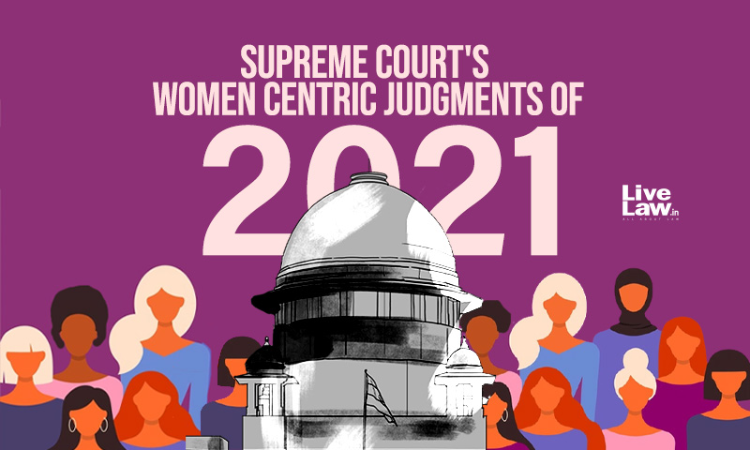Supreme Court Judgments On Women Empowerment & Gender Equality In 2021
Srishti Ojha
30 Dec 2021 2:04 PM IST

Next Story
30 Dec 2021 2:04 PM IST
" No country can ever truly flourish if it stifles the potential of its women and deprives itself of the contributions of half its citizens" : Michelle ObamaIt is a known fact that women have been struggling for decades trying to fight the patriarchal mindset and stereotypes which come along with it. When discrimination against women is prevalent in various forms and in different spheres,...
